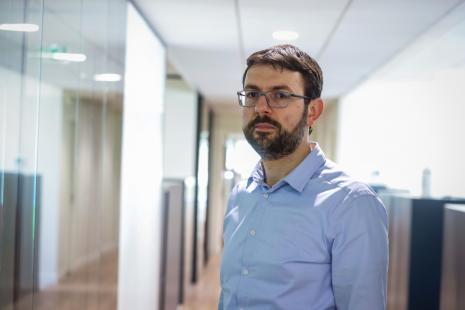
Daily: Rally 61e National Conference with Public Health as the common denominator. What are your demands for the Minister of Health?
Dr. Frédéric Feilbrunn: Right now, health centers are a bit far from the counseling game. We want to take better account of, defend and strengthen the role of health centers as public health players in the field and in primary care. Our goals are enshrined in the Public Health Act, but the specifications remain vague. For example, we are not obligated to develop these public health measures, we would like this to be more assertive.
It is also necessary to be able to better distinguish, among health centres, between those that have a real role in the “regional public health service”, and other centers that do not have these public service functions, including some of the so-called “deviants”. Public authorities must clearly state that they entrust prevention and public health measures to these and those structures, by entering into contracts with them, in conjunction with other actors in the field of prevention such as the CPTS for example.
What types of procedures would you like to develop?
We do secondary prevention (screening for cancers, STDs, tuberculosis, etc.) and primary prevention (vaccination, diabetes, cardiovascular disease, etc.). These last measures deserve to be developed in a more significant way. It is ingrained in the profession of a specialist but is done so much on an individual scale! We should be more ambitious in ‘reaching’ the isolated population and not just wait for them to be included in preventive measures.
When you see a patient in a consultation, unfortunately prevention is not the priority because the patient already has much greater reasons for the consultation. But health centers can be the “entrepreneurs” of these prevention projects, by helping volunteer physicians to be public health actors in the field, with a population-based approach. When you are paid per job at a health center, as we require, you can take the time to put this population strategy into action. That’s not possible when you’re being paid for the act – whether you’re a Liberal or a health center.
Are the established trials (PEPS and IPEP*) associated with Article 51 going in the right direction?
Yes in theory! But in practice, disagreements are already emerging over how to calculate these fixed prices. Should we rely on the number, type, or characteristics of patients? Currently, we are developing a model based on fee-for-service data and then extrapolating it to lump sum payments… We would like to base these lumps on quality, suitability of care and teamwork. Today, the Department and Medicare still struggle to find a structured financial model that works for us.
* A lump sum payment in a team of health professionals (PEPS) and an incentive for shared care (IPEP)






